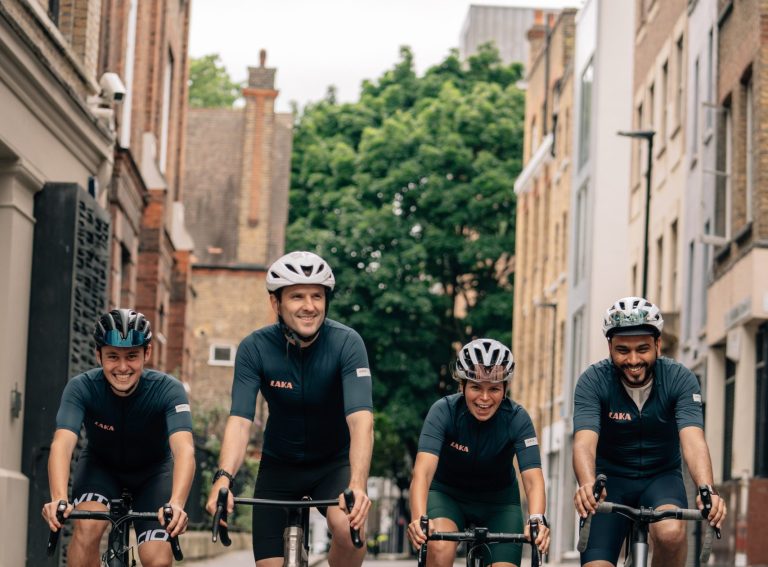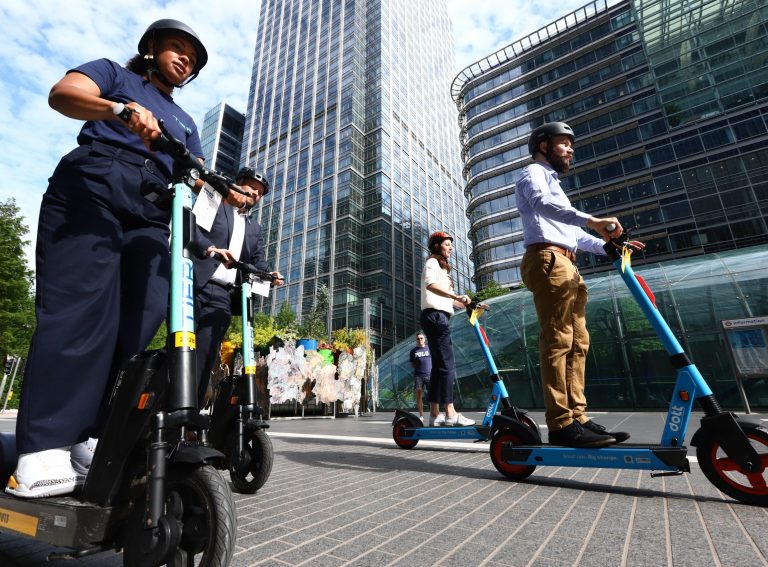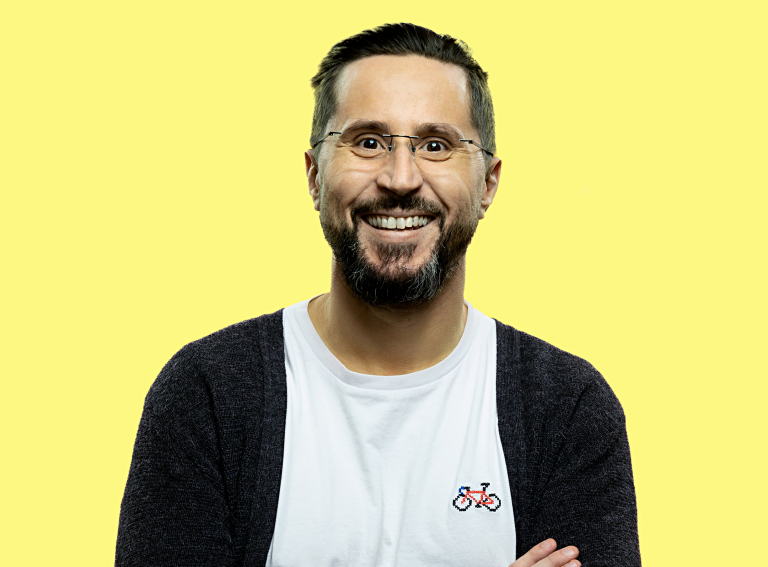“It’s amazing how many teachers, carers, nurses come into our shops saying ‘this looks like a great form of transport, I’d love to buy it’. But then we say ‘just to let you know, you can’t ride it legally on roads, it’s only for private land’ and because they’re law-abiding people they walk out not buying.”
This is Adam Norris, founder of specialist e-scooter retailer Pure Electric.
By “legally on roads”, Norris means on the public highway, so roads, pavements or cycle paths, and when he says they can only be used on “private land”, this also has to be with the landowners permission.
Norris continues: “We did a survey of the people that come into our shops and 80% of people walk out once we tell them e-scooters are illegal to ride on roads.”
Currently, the most up-to-date law governing these motor vehicles is the 1835 Highways Act, which effectively classifies e-scooters as a ‘carriage’. Although the law governing them is old, it is completely legal to sell private e-scooters. This mismatch is something Norris is determined to fix.
Founding Pure Electric
Norris launched Bristol-based Pure Scooters in 2018. Since then, it has diversified into e-bikes hence the name change.
“We’re focusing on the urban environment rather than the countryside,” says Norris. “And although we do sell electric mountain bikes, it is not our core market. Our core focus is in urban mobility, low pollution, micromobility.”
Norris is hoping that this new venture will be as successful as his previous businesses.
A former Managing Director of Hargreaves Lansdown, he went on to launch Horatio Investments where he invested in start-ups, while also spending ten years helping his son Lando Norris race his way to becoming a Formula 1 driver.
After Hargreaves Lansdown floated on London’s stock market, Norris did not “feel overly fulfilled”, wanting to invest his wealth into “something that was good for the planet, good for mankind.”
That is when he landed on e-scooters.
“I think it was an article in the Financial Times talking about [micromobility operator] Bird. I was reading it with fascination. I thought, wow, that really makes sense to me. And the more I dug into it, the more I understood it.”
Fast forward three-and-a-half years and Norris’s business is now gaining a lot of traction in other more mature European markets such as France and Spain. Seeing that the UK is at risk of being left behind, Norris knows something has to change.
Why legislation and regulation is needed now
“The people are voting with their feet by riding them on the streets,” says Norris. “Because they’re riding them illegally [on public roads], they’re doing what they want. And I believe that if we have a clear set of rules, most people will stick to them.
“We do it for cars, most people don’t go the wrong way down one-way streets, and they don’t overtake when there is a solid white line, and they roughly stick to the speed limits. I think you’d see the same thing happening with e-scooters because human beings are generally compliant.”
Pure Electric’s message is that private e-scooters reduce reliance on cars, ease congestion and improve air quality in towns and cities across the UK.
But more recently, Norris has also realised that they would “transform” commuting options for the lowest earners too.
A study by the firm shows more than 13 million people earning under £25k would consider using an e-scooter if legalised.
Norris explains: “People say it’s cheaper than the bus or I can’t get to a local bus stop, so I want to buy a product. And they can’t afford an e-bike, they can’t afford a car, so it’s a great form of transport for people on low income. The storage issue as well – most people buying a bicycle have got a garage or garden shed. A lot of people on lower incomes don’t have that.”
This comes at a time when the cost of commuting is surging. Rail fares, for instance, have increased nationally by 3.8%.
So Norris’s argument is that if private e-scooters were legalised, millions of low-income commuters would have an affordable, low-carbon, choice of transport.
His letter to the PM
One of the main points of the open letter to Prime Minister Boris Johnson was “that it’s low income people who’ve been disadvantaged,” says Norris.
But the other reason was to express his deep concern that the lack of regulation and significant product variation (with some e-scooters being safer than others) is putting the public’s safety at risk.
In the letter, he therefore proposes an ambitious regulatory framework, identifying a few key points he thinks the government should consider.
These include mandatory insurance for all e-scooter riders, defined speed limits and number plates so that law enforcement agencies can identify riders.
“I think we should have a very clear set of rules – lights, two independent braking systems and so on. And this is the problem – some e-scooters that are being imported from overseas don’t have these rules. People clearly do have accidents and one thing which is really difficult to find is what sort of product were they on? Was it a fake product which didn’t have two brakes for example? It’s where and what.”
For Norris then, safety is a number one priority.
How Pure Electric is keeping its riders safe
While Pure Electric started out by importing its e-scooters, Norris soon realised he wanted to have some say in the design of his products.
“Watching what was coming out of China at the time, it was important that we really understood the consumer. And what I felt was that actually they weren’t making products for the European market, they were making products for China. Generally for smaller people, lighter, in warmer environments, smoother roads and effectively Europe is different.”
Since then, the company has launched its 1st and 2nd generation Pure e-scooters, with the help of external manufacturers, and is now choosing to align its future products with the German rules and regulations safety standards. This includes having two independent brakes, a ringing bell (or acoustic horn) and ensuring all e-scooters have lights and reflectors.
But now Norris has taken on a new challenge.
“We went back to basics by asking – how are we going to make this product safer? How do we make it more convenient?”
The solution he came to was to design and develop their first e-scooter in-house.
“This is so we can deliver an even better product and that just takes time to come out onto the market, and that’s where we are at the moment. E-scooters are only going to get lighter, safer, cheaper, comfier and I want to be right at the forefront of that.”
Given Norris’s drive and previous business successes, he is exceptionally well-placed to lead the way.
Adam Norris is a speaker at the upcoming New Mobility Forum on 13 May in London. Click here to find out more about the event.





